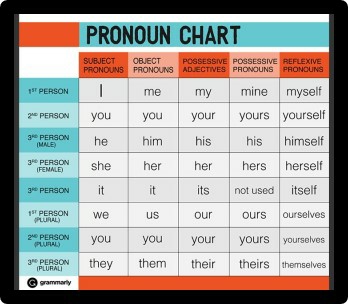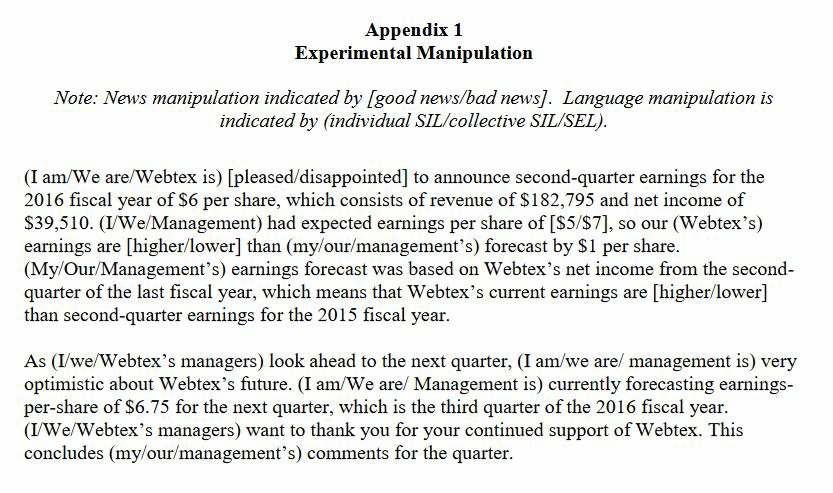Pronouns Matter on Earnings Calls
/ A study by researchers at Tulane University found that CEOs who use "self-inclusive language" on earnings calls leave more positive impressions. Self-inclusive language means using first-person pronouns that include the speaker, and they can take singular or plural forms (for examples, "I", "we," "us," "my," "our"). When executives didn't use pronouns (for example, "Webtex's managers" or "Webtex management"), investors reacted less favorably to disclosures, whether positive or negative. The study script is below.
A study by researchers at Tulane University found that CEOs who use "self-inclusive language" on earnings calls leave more positive impressions. Self-inclusive language means using first-person pronouns that include the speaker, and they can take singular or plural forms (for examples, "I", "we," "us," "my," "our"). When executives didn't use pronouns (for example, "Webtex's managers" or "Webtex management"), investors reacted less favorably to disclosures, whether positive or negative. The study script is below.
 In addition to the experimental study, the article includes results from text analysis of more than 50,000 earnings calls. Correlating language used in the calls with market reactions, the authors confirm results from the experiment.
In addition to the experimental study, the article includes results from text analysis of more than 50,000 earnings calls. Correlating language used in the calls with market reactions, the authors confirm results from the experiment.
A Wall Street Journal article quotes James Pennebaker, a professor of psychology at the University of Texas at Austin about the study: "The way I interpret it is that the manager's coming across as more human." Pennebaker is referring to authenticity, and that likely is part of the explanation. Another possibility is that executives sound more accountable, which might also cause investors to respond favorably. In the article, the authors also hypothesize:
"When news is positive, investors react more positively to managers' use of SIL
because they infer managers are more likely to have high ability. When news is negative,
investors also react more positively to managers' use of SIL as it appears that managers are more in control of the situation."
Discussion:
- You just read a few interpretations of the study results. What do you think could explain the results?
- To what other types of messages could this research apply?


